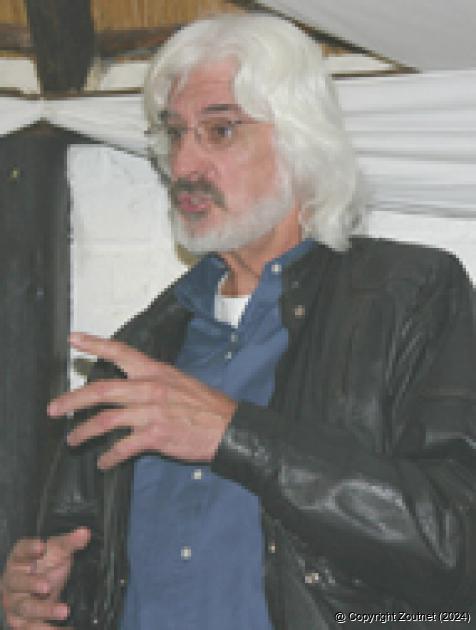
Well-known Prof Louis Changuion addressed the Chairperson’s Association on the lessons to be learnt from examples of co-operation between racial and tribal groups in the history of the Limpopo province.
News - Date: 12 August 2005
MAKHADO (LOUIS TRICHARDT) – In the history of Limpopo there are many examples of co-operation between different groups.
“We tend to only remember the clashes. Take the memories of goodwill between groups and build for the future,” says historian Prof Louis Changuion.
Prof Changuion addressed the Chairperson’s Association on the lessons to be learnt from examples of co-operation between racial and tribal groups in the history of the Limpopo province. Co-operation between different groups is also a hallmark of the Chairperson’s Association. The audience at the Lalapanzi Hotel on July 21 comprised chairpersons and other members of the Venda, Shangaan, Afrikaans English, Buys and Indian communities who work together in the interest of the whole region.
Prof Changuion said that the first contact between black and white in the region was around 1830 when groups of anti-colonial white people moved north, resisting the imperialism of the British empire. Only two parties moved as far as the Soutpansberg, one under the leadership of Louis Trichardt and the other under Lang Hans van Rensburg. These Voortrekkers had a good relationship with the Vhavendas. They supported Ramabulana, son of the late king Mphepu, in his struggle as successor and helped to establish his rule.
The acquaintance between the Voortrekkers and the Buys people proved to be very positive. They assisted Louis Trichardt to find the route to Lorenzo Marques, today Maputo.
With the help and consent of the Vhavendas, the Voortrekkers settled in the Soutpansberg at Schoemansdal.
The relationship between the Shangaans and the whites was always good, as proved by the relationship between Joao Albasini and the Shangaans, who recognised him as one of their chiefs. The Shangaans fought many a time alongside the Afrikaners.
Prof Changuion is not only well acquainted with the history of the area, but experienced the geography and people firsthand. He is renowned for the epic walk that he undertook in August 2002 when he walked the 835km from Inhambane in Mozambique to Schoemansdal in 30 days. This was to commemorate a historical walk in 1855 by Priest Joaquim de Santa Rita Montanha.
“I am writing a book, still to be published, that includes a chapter on the involvement of black people in the Anglo Boer wars,” Prof Changuion said.
He said that in the Anglo Boer War of 1899, two small Boer Republics opposed imperialism. The industrial revolution resulted in the need for more markets and the riches of Africa.
In the drawn out war, a scorched-earth policy was followed where all farms were burnt down and livestock were killed. Woman and children were put in concentration camps in the former Pietersburg. The Boer families became destitute. In a classic example of goodwill, chief Tshivhase for three months sent wagonloads of mealies to women who were hiding in the bushes. It is documented that the Indian community in Pietersburg supplied the Boer Commandos with food and horses. Quite a number of the Buys family fought on the Boers’ side.
The audience clearly enjoyed Prof Changuion’s lively presentation and deep insight into the region’s history.








